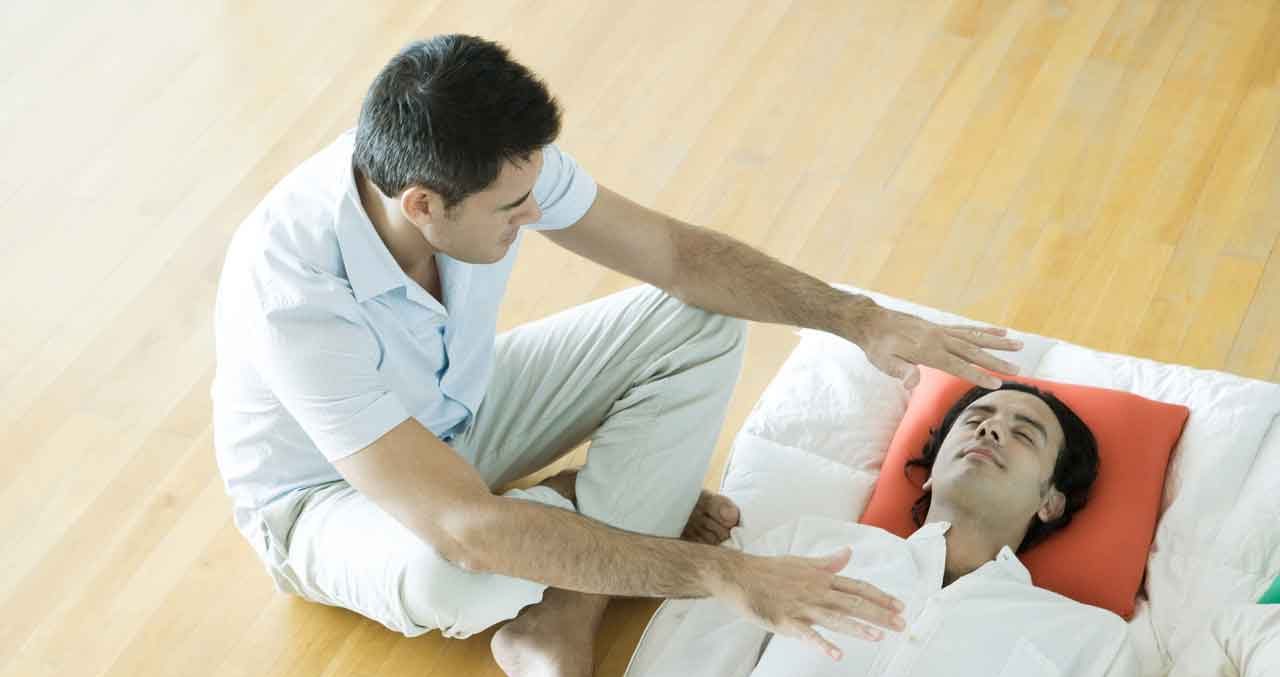Does Energy Healing (Reiki) Really Work?

More research backs the benefits of alternative therapies like Reiki, but many skeptics are lined up to refute this form of healing as placebo effect.
Carly Moore, lying on an exam table in a fetal position, is asked how bad her pain is by her mom Linda.
Asked the question many times before, she answers 6.6 on a scale of 1 to 10. Her medication isn’t working.
Sheila Mee, of Children’s Hospital & Medical Center in Omaha, has her hands an inch or so above where it hurts worst: Carly’s wrist and thumb. Mee doesn't touch the teenager, but slowly moves her hand back and forth over the painful area.
The room is silent. After about five minutes or so, Carly reports that her pain is at “zero and a half.”
Mee is a practitioner of energy healing, which treats the teen’s arthrogryposis, a condition in which joints are fixed in a bent or straightened position.
On one hand, there is strong belief that healing energy, or healing with or without touching your body, has real application and benefits.
YOU MIGHT ALSO LIKE: The Mysterious Power of Placebos
On the other are skeptics lined up to refute this form of healing as placebo effect, and they point to the lack of scientific evidence as proof of its ineffectiveness.
In the middle are those who keep an open mind about aspects of medicine that represent the frontier of what we don’t know.
After putting several of the healing power methods to the test, some using touch, some not, the New York Daily News asked some experts for their opinions of these practices.
Deepak Chopra, a best-selling author and “a holistic physician who also subscribes to Western teachings,” said that “science is starting to understand how energy healing works.”
"It triggers your own healing system, which is called homeostatsis," he said. Homeostatsis is what tells your body to create an antibody when you have an infection, or a clot when you fall so that you don't bleed to death.
Mark Melrose, MD, an emergency physician at Urgent Care Manhattan, said “there’s infinitely more we don’t understand” about medicine, and that alternative therapies such as energy healing could help patients — provided they do no harm and complement traditional treatments.
"If it makes you feel better, then it's probably helping," he said.
If anything, these practices can help with stress reduction, which is linked to an improvement of many health conditions, like heart disease and hypertension.
Andrew Weil, MD, who also straddles the Eastern and Western medical worlds, believes that because there is such a strong connection between mind and body anything that can promote relaxation can be of benefit.
He notes studies have shown that when a person is deeply relaxed “heart rate and blood pressure decrease, blood flow to the bladder and bowels increases and breathing becomes rhythmic and slow.”
“Research on (healing touch) seems to indicate its value in medical settings in promoting wound healing, decreasing pain and improving quality of life measures,” he writes. “But energy therapies such as HT remain highly controversial. While there is abundant, relatively uncontroversial evidence that massage can have therapeutic effects, non-contact modalities are seen as far more problematic.”
Still, he “often” recommends energy therapies to patients with chronic pain and for treatment to promote relaxation or ease anxiety.
The best known of the healing touch techniques is Reiki. Proponents point out that there are now peer-reviewed, published research results, and that the Center for Reiki Research has examined a number of them. The practice is becoming increasingly accepted at medical institutions, with hospital staff adding Reiki to their work.
Updated:
March 31, 2020
Reviewed By:
Christopher Nystuen, MD, MBA